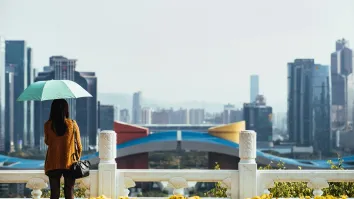
More Indians eager to buy insurance on the rise: survey
The survey aims to identify behavioural shifts in insurance buying trends.
More Indians, especially in tier-2 and tier-3 cities, are now more willing to buy insurance, a survey by online insurance marketplace Policybazaar revealed.
Policybazaar surveyed 5000 consumers with an aim to closely understand the behavioural shift in insurance buying trends.
Its findings revealed 89% of consumers from tier-2 cities are willing to renew their health cover as compared to 77% in tier-1.
The survey also revealed that the pandemic also pushed more Indians to purchase insurance. In fact, Policybazaar found out that whilst 50% of insurance policies were bought after the first wave of COVID-19, 41% were purchased after the Delta variant. Additionally, 80% of these policies were family floater plans, thereby revealing a higher inclination towards ensuring sufficient coverage for the entire family.
Also, a significant proportion of 84% of respondents did not have to serve a cooling-off period. Earlier, a cooling-off period of 3 to 6 months was applied wherein people recovering from Covid could not buy a policy before completing this duration.
“These figures demonstrate the insurers’ effort to expand the safety net and ensure maximum protection. Moreover, even as Covid’s graph continues to be erratic, over 80% of respondents still show a willingness to renew their health insurance and 35% of them plan to increase their cover. The reasons cited for the same are rising medical inflation, financial instability and covering more family members,” Policybazaar said.
Meanwhile, similar trends were also identified in term insurance, where 59% of respodnetents who want to increase their coverage belong to tier-3 cities as compared to 26% from tier-1 cities.
Going more in depth, Policybazaar identified that as of April 2022, 60% of the respondents had an active term insurance policy. Whilst 55% of people prefer term insurance because they want a larger cover for a lower premium, 24% want enhanced protection over and above their existing life insurance policy. This depicts an increased awareness towards benefits of a higher cover policy among the buyers, given these uncertain times.
Additionally, purchase trends also bear similarities to increase in health insurance purchases. Whilst 47% of the active term policies were bought after the first wave, 40% of them were purchased post-second wave.
“The pandemic might have triggered the purchase of the policy, as many as 78% of respondents want to continue the policy even as things begin to get back to normal. 39% of them wish to opt for a higher cover, with the highest number of respondents (59%) belonging to tier-3 cities,” Policybazaar added.
You may also like:
LIC closes IPO with nearly three-fold oversubscription



















 Advertise
Advertise







